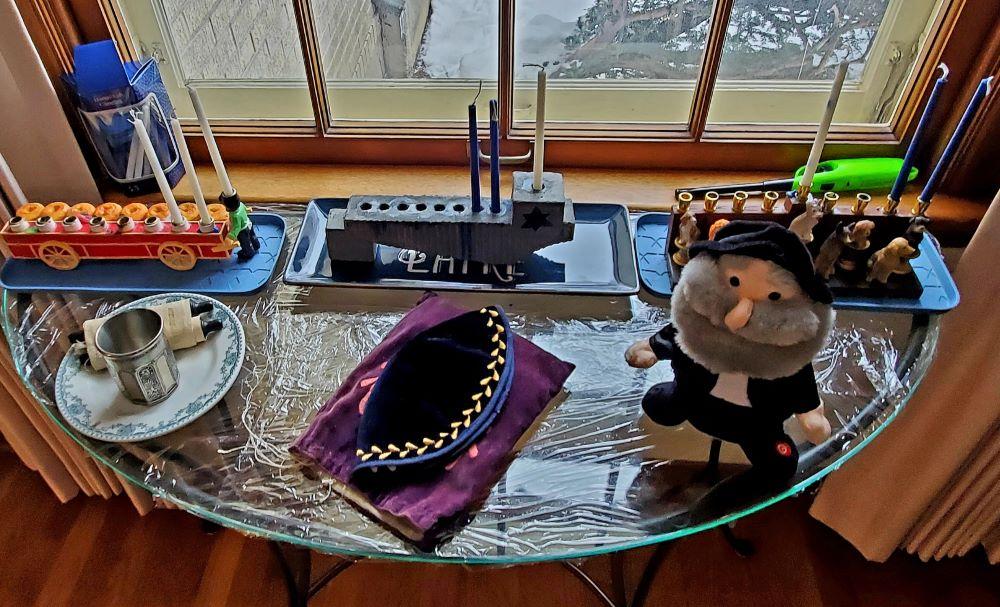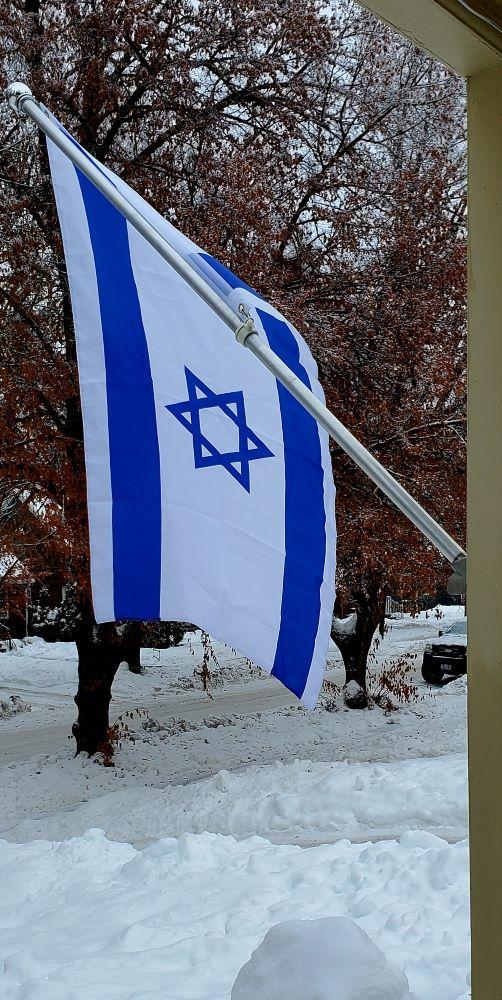Hanukkah and Antisemitism
Commentary by Steven A. Smith
Hanukkah began Sunday.
And like all American Jews, I am a little nervous this year.
Hanukkah ends on Dec. 26, creating an unusual confluence of holidays.
And it comes during a time of growing antisemitism in the U.S. and the world. The number of antisemitic incidents in 2021 was the highest in nearly 50 years, and 2022 is going to be worse.
American Jews fear the Hanukkah season, coinciding with Christmas as it does, will spark a wave of new outrages. News organizations already are reporting incidents of vandalism and harassment in places as far-flung as South Florida, New York and Southern California.
I wrote last year about the meaning of Hanukkah and the importance of placing the celebratory menorah in a window for the world to see. I wrote about Rachel Posner, wife of a German rabbi, who placed the family menorah in a window across the street from a Nazi flag. “Judah will live forever,” she wrote on the back of a photo that has since become iconic.
The menorah, lighted over eight days, is to remind the world that Jews are still here, that we have not been destroyed by our oppressors.
But in the current climate, public displays in synagogues, parks or even private homes, could trigger retaliation, even violence.
The fear is not unreasonable.
Those who read my columns know that I am a secular Jew. I was raised in a Jewish home, went to Sunday school, prepared for my bar mitzvah. But in adulthood, I moved from being a religious Jew, to an agnostic and now an atheist. Still, I remain culturally Jewish. And I observe some of the traditional rituals, in part because they connect me to my family, especially my father.
That is why I celebrate Hanukkah. I have a substantial menorah collection and several remain in my front window for the duration of the holiday. Last year, I added an outdoor menorah that I place near what can only be described as a Hanukkah tree.
This year I added an Israeli flag, mostly because its Star of David can be seen clearly.
And it makes my dear Carla nervous. She worries for me.
Each year my Hanukkah display becomes more visible as I become more and more defiant.
Antisemitism is nearly as old as the Jewish people. Jews fled persecution from pagan oppressors in their ancestral homelands in the centuries before Christ. The Jewish diaspora, the dispersal of Jews to all corners of the world, began – more or less – after the final destruction by Romans of the second temple in Jerusalem, about 70 BCE.
In subsequent centuries, Jews were persecuted by every major world power, expelled from country after country. Periodically, the Christian population would turn from their own religious wars to slaughter Jews who were blamed for everything from failure of the Crusades to the black plague.
It has been centuries, but Jews still remember the inquisition in Spain in the 15th century, the worst anti-Jewish atrocity until the Holocaust.
My family fled Eastern Europe in the early 20th century to escape the pogroms that decimated entire Jewish communities.
Historically, antisemitism re-emerges from the shadows in times of economic disruption and international unrest. These are such times.
In the U.S., there are three legs to the antisemitic stool.
First, traditional hate groups have moved into the mainstream in the last several years, aided in no small part by Donald Trump. His recent meeting with two notorious antisemites empowered those evil forces even more.
Second, another growing source of antisemitism comes from the progressive left. Opposition to Israeli/Palestinian policies too often employs antisemitic tropes and labels the left would never apply to other ethnic groups. This poison is especially prevalent on college campuses.
Finally, and most discouraging, there is growing antisemitism in the African American community exemplified by Ye – formerly Kanye West – and the group he supports that claims Black Africans are the true descendants of the ancient tribes of Israel. Once allies in the pursuit of civil rights, this new anti-Semitism threatens an historic progressive partnership.
So, Hanukkah finds American Jews nervous, even fearful this year. And with cause.
Confronted with pervasive antisemitism, Jews generally think of themselves standing alone. Yes, most Americans condemn antisemitism as they condemn racism. When incidents occur in their communities, they respond with statements of public support, with prayers for tolerance and, where needed, even police action.
But condemnation is never enough, does not provide a meaningful defense against antisemitic action. History reminds us of that.
That is why Hanukkah is so important in these troubled times. I think Rachel Posner, that brave German woman, would agree. As I wrote last year, the menorah, placed in public view, is a defiant light in the darkness, a symbol of Jewish resistance to the forces that would obliterate us.
I am no Rachel Posner, and I do not live amongst Nazis. We are not there yet.
But Hannukah requires a public declaration. We are Jews. And we will not go away.








